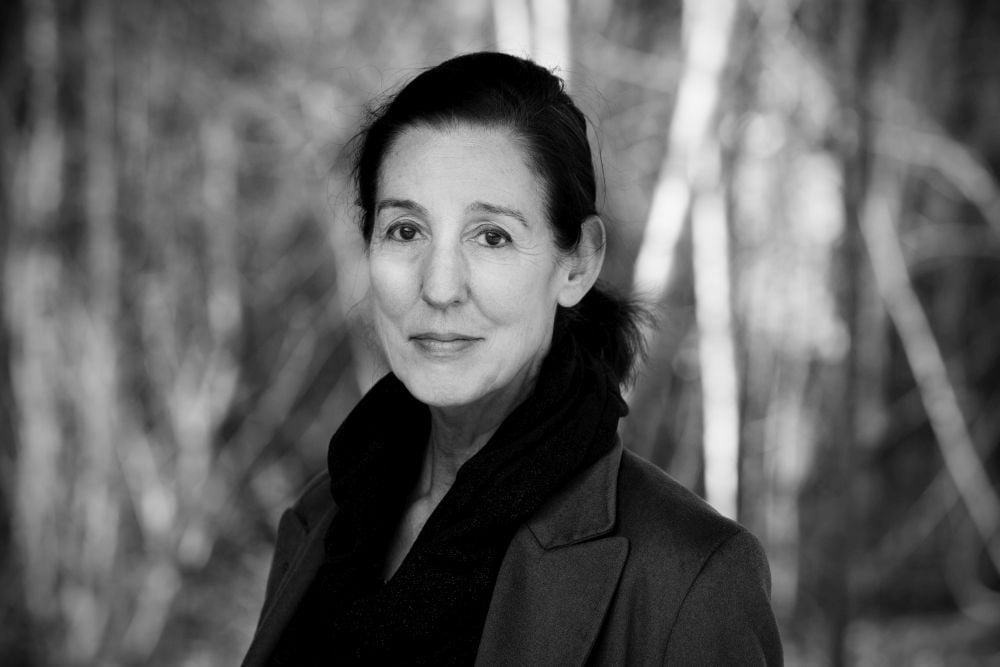
Judith Kuckart
German director and writer Judith Kuckart was born in Schwelm, near Wuppertal in 1959. She underwent dance training at the Folkwang School in Essen, after which she studied literature and theatre in Cologne and Berlin until 1983. Afterwards, she was an assistant at the Choreographisches Theater der Stadt Heidelberg and one of the five members of the TanzTheaterSkoronel (Berlin), of which she later became the director. Without a permanent venue, but with a permanent ensemble supplemented with guests, the free, professional group toured throughout Germany and other European countries until 1998. Kuckart has worked as an freelance director since 1999.
As a writer Judith Kuckart made her debut with the novel »Wahl der Waffen« (1990; tr: Choice of Weapons), a story about two women. Jette, born during the war, becomes a terrorist and Germany’s most wanted woman; Katia, looked after by her as a child, sets out to find clues after learning of Jette’s death in Lebanon. The novel is a careful approach to actual events in West Germany in the 1970s. Monika Maron stated in »Der Spiegel« that »Kuckart narrates associatively, thus opening up various possibilities for further thought, allowing interpretations that she herself considers but does not suggest.« Her debut was followed by other novels: »Die schöne Frau« (1994; tr: The Beautiful Woman) and »Der Bibliothekar« (1998; tr: The Librarian). After a stay at the Villa Massimo on a scholarship, Judith Kuckart published the diary-like text »Sätzemit Datum« (1998; tr: Sentences With Date), which reflects her observations and feelings from this time as well as the mourning for her mother, who had died shortly before, and was later made into a radio play. This was followed by the novels »Lenas Liebe« (2002; tr: Lena’s Love), »Kaiserstraße« (2006) and »Die Verdächtige« (2008; tr: The Suspect), as well as the short story collection »Die Autorenwitwe« (2006; tr: The Author’s Widow). In her prose, she usually combines contemporary history and politics, be it the Nazi era, the early Federal Republic, or Germany after reunification, with the personal suffering and loves of her protagonists. In »Kein Sturm, nur Wetter« (2019; tr: No Storm, Only Weather), she refines this procedure into an existential reflection on the turning points in biographies and fundamental, personality-forming life themes such as remembering, repression, and loneliness: »We are what we remember and what we forget.«
She has received numerous prizes and scholarships, including the Ruhr Literature Prize, the Annette von Droste Hülshoff Prize, and the Deutscher Kritiker Prize. Her works have been translated into several languages. The author lives in Berlin.
Wahl der Waffen
S. Fischer
Frankfurt a. M., 1990
Die schöne Frau
S. Fischer
Frankfurt a. M., 1994
Der Bibliothekar
Eichborn
Frankfurt a.M., 1998
Sätze mit Datum
Villa Massimo
Rom, 1998
Lenas Liebe
DuMont
Köln, 2002
Die Autorenwitwe
DuMont
Köln, 2003
Kaiserstraße
DuMont
Köln, 2006
Die Verdächtige
DuMont
Köln, 2008
Wünsche
DuMont
Köln, 2013
Dass man durch Belgien muss auf dem Weg zum Glück
DuMont
Köln, 2015
Kein Sturm, nur Wetter
DuMont
Köln, 2019
